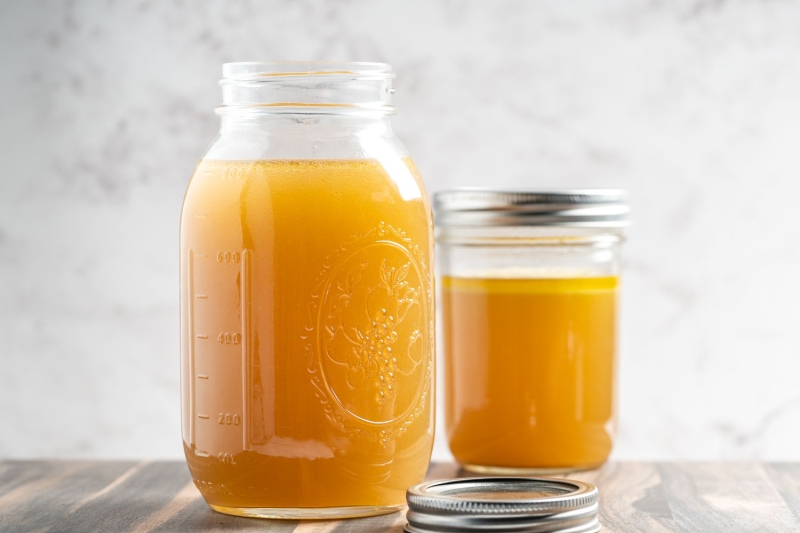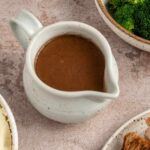Prep: 20 mins
Cook: 2 hrs 15 mins
Total: 2 hrs 35 mins
Servings: 12 servings
Yield: 3 quarts
Chicken broth made from chicken wings is the perfect base for many other recipes, including sauces, rice, paella, and stews—and it’s a treat on its own. Flavored with onions, carrots, celery, and herbs, this broth is much more flavorful and has more body than broth made with chicken breast or other parts of the chicken that have less cartilage. Because wings have many joints, these bits, when cooked, add more texture to the liquid when the generous amounts of collagen seep into the broth, adding a robust chicken flavor and creating the perfect texture. Although you need to invest some time, the hands-on work is minimal, and the reward is big. Use the broth in your favorite recipes, or enjoy it with a few slices of bread and a grate of Parmesan cheese.
If you have any saved-up freezer necks and backs from whole chickens, or other odd bits that you don’t know how to use, toss them in with the wings. Use fresh or frozen vegetable scraps, like the ends and peels of onions, bits and pieces of celery stalks and leaves, or carrot. Use our recipe to reduce your food waste while making a delicious broth.
Many worry about the fat content of wing-based broth, but in fact, once the broth is chilled, the fat will rise to the surface, solidify, and become easy to remove. By chilling the broth, the flavor in the remaining liquid will also be more concentrated. Also, the longer you cook the ingredients down, the richer and more concentrated the broth will be. Plan on at least a two-hour cook time.
Ingredients
-
1 tablespoon vegetable oil
-
3 1/2 pounds chicken wings, chopped at the joints
-
1 medium onion
-
1 medium carrot, chopped
-
1 rib celery, chopped
-
2 to 3 quarts water, or as needed
-
4 sprigs fresh parsley
-
3 sprigs fresh thyme, or 1/2 teaspoon dried thyme
-
1/2 teaspoon whole black peppercorns
-
2 bay leaves
Steps to Make It
-
Gather the ingredients.
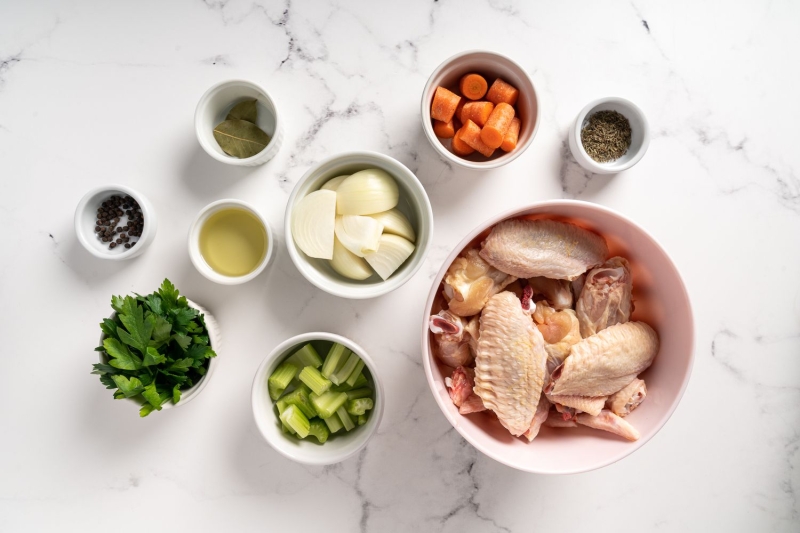
-
Add the oil to a large pot over medium-high heat. Cook the chicken wings, onion, carrot, and celery in the oil, stirring often for about 10 minutes, just until the vegetables soften but without browning the chicken.
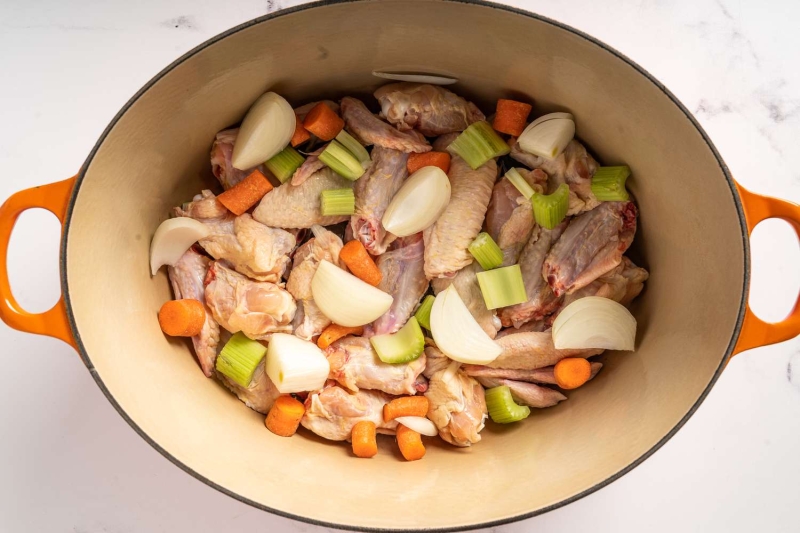
-
Add enough cold water to the pot to cover the ingredients by 2 inches.
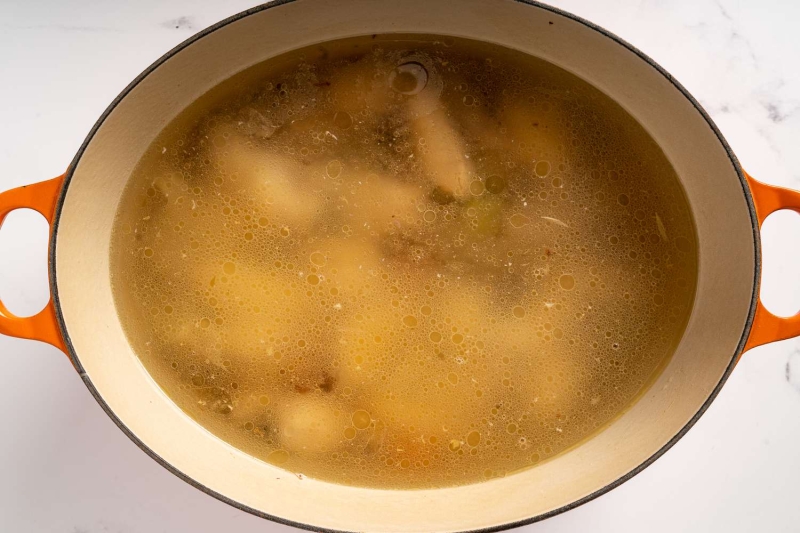
-
Bring to a boil over high heat, skimming off any foam that rises to the surface.
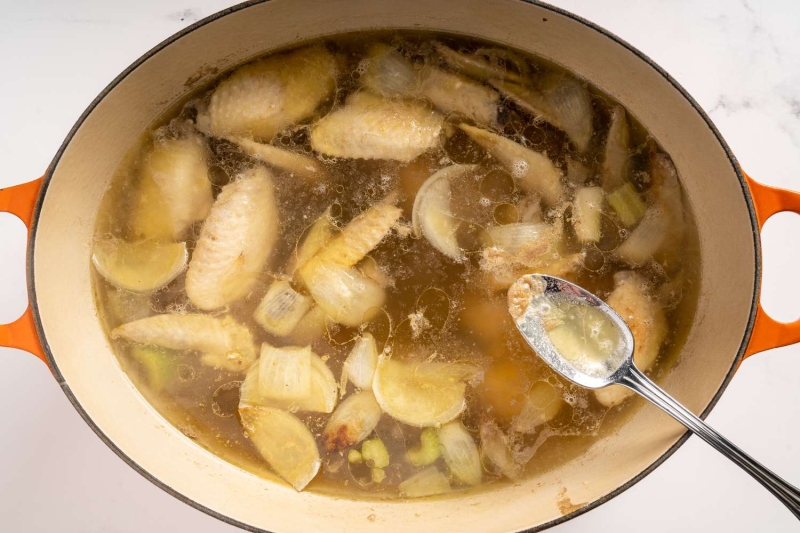
-
Add the parsley, thyme, peppercorns, and bay leaves. Reduce the heat to low and simmer uncovered until the broth is full-flavored, at least 2 hours—but you can choose to let it simmer for up to 6 hours on the lowest setting of your stovetop.
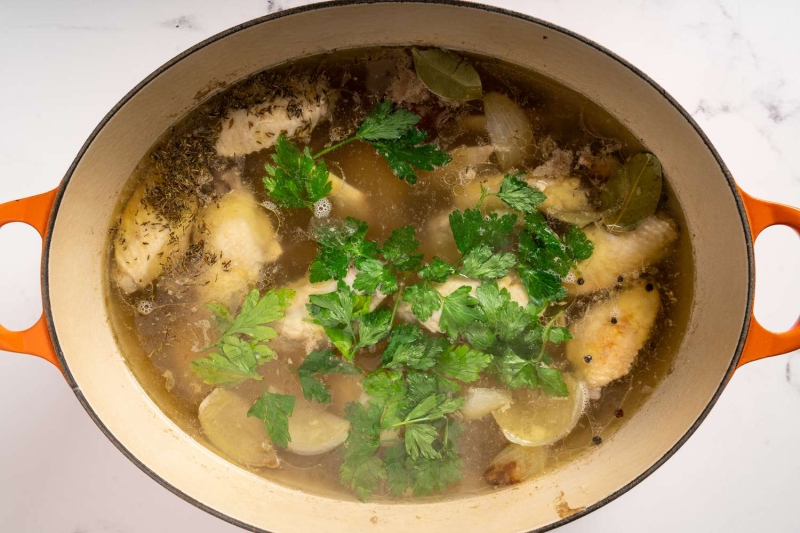
-
Strain the broth through a colander set over a large bowl. Discard the solids. Let stand for 5 minutes.
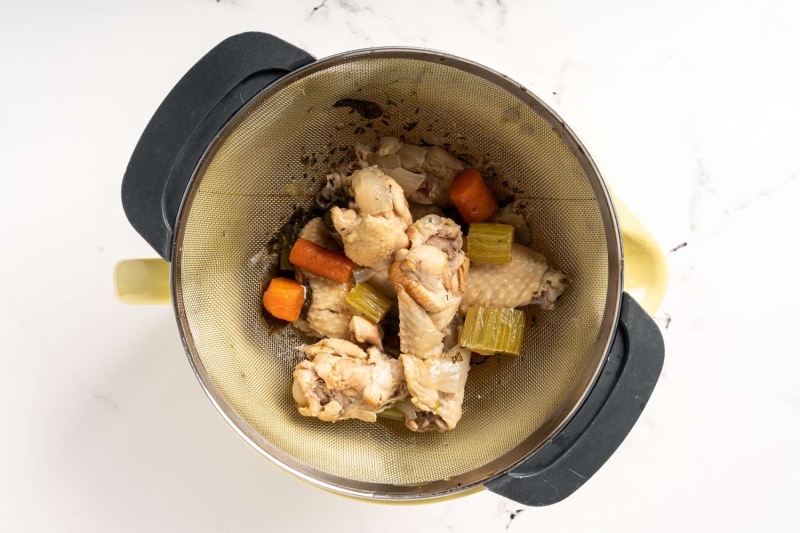
-
Skim off the clear yellow fat that rises to the surface. Cool to room temperature. Cover and refrigerate until ready to use. If you’d like to remove more of the fat from the broth, chill for several hours. The fat should rise to the surface and solidify, allowing you to easily remove it. Alternatively, you can use a fat separator, which allows the fat to rise to the top and out of the spout, making for easy removal.
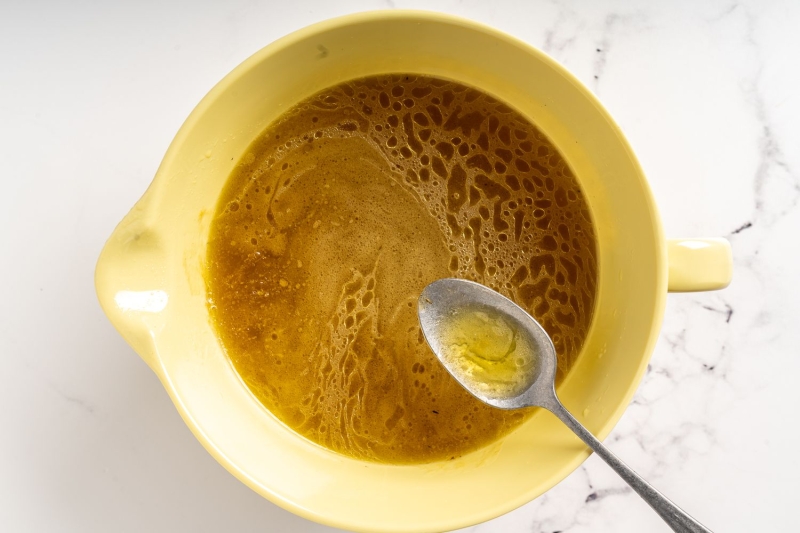
-
Enjoy.
How to Store Wing Broth
- The broth can be prepared up to three days ahead. Cover and refrigerate until ready to use.
- Freeze for up to three months. Pour the broth into an ice-cube tray, making individual broth cubes. Once solidified, transfer the cubes to a resealable bag. When ready to use, simply take one or two cubes and add them to your recipes to enhance the flavor of your meals.
- If freezing in one container, add to freezer-safe jars or containers and leave an inch of headspace, since the broth will expand when it freezes. Thaw overnight before using.
| Nutrition Facts | |
|---|---|
| Servings: 12 | |
| Amount per serving | |
| Calories | 450 |
| % Daily Value* | |
| Total Fat 33g | 43% |
| Saturated Fat 12g | 58% |
| Cholesterol 108mg | 36% |
| Sodium 535mg | 23% |
| Total Carbohydrate 15g | 5% |
| Dietary Fiber 1g | 3% |
| Total Sugars 1g | |
| Protein 23g | |
| Vitamin C 7mg | 34% |
| Calcium 42mg | 3% |
| Iron 2mg | 10% |
| Potassium 269mg | 6% |
| *The % Daily Value (DV) tells you how much a nutrient in a food serving contributes to a daily diet. 2,000 calories a day is used for general nutrition advice. | |
